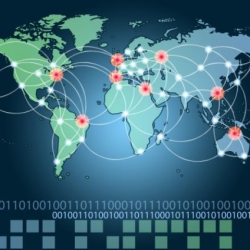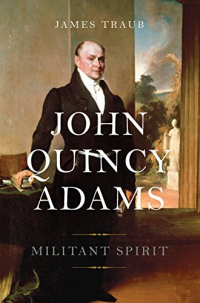 World War III is an Internet war. It has been ongoing for over a decade.
World War III is an Internet war. It has been ongoing for over a decade.
When the conflict was between countries like Pakistan and Ireland, or Ukraine and Russia, we could afford to ignore it.
Then it came to our own shores. November 8, 2016 was this war’s Pearl Harbor.
Yet we still haven’t reacted, because once the enemy is in the tent the media thinks going after them is friendly fire.
There’s nothing friendly about it.
Sure, there are efforts underway at Google and Facebook to boost “real news” and dissuade “fake news.” Yes, there are efforts underway in Congress to control online political spending. Yes, there is the Mueller probe.
But these are nothing. We still see the Internet War as something we can stop with higher firewalls, or bigger budgets.
We can’t.

What we need is not global Internet armament, nor do we need to balkanize the Internet as we’re now doing, with different rules for what can be read and written in every country.
What we need is a global Internet peace effort.
We need to establish norms, both for individual behavior and national behavior, and then find a way to enforce those norms.
This means we need to start finding areas of agreement, between civil societies, and work outward from there. We then need to isolate those regimes that refuse to be bound by those norms, securing science and technological progress from those who aren’t willing to commit to its peaceful use.
This starts on a technical level, with efforts like the Internet Society’s Mutually Agreed Norms for Routing Security (MANRS). They offered a white paper last year , addressing such esoteric subjects as filtering and IP source validation, urging collective action, best practices, and an effort to update routing security tools.

The second thing we need are social norms, what 20 years ago was called Netiquette. This doesn’t require any change to our laws. It’s a battle we should all be engaged in. It’s the fight to build good online citizens.
That means you don’t respond to trolls or bots. You block them. You report them. You remain alert for them, in the same way you’re alert to spam.
Given the fact that our current President is a Russian agent, this means blocking Trump, and his acolytes. We must stop pretending there are “good people on both sides” in an argument about Nazis. We must stop pretending there is no such thing as objective truth.

The next step, which we probably can’t take until American democracy is secure again, is to identify and isolate those governments, and their online efforts, dedicated to undermining their neighbors. (In the world of the global Internet, every country is every other country’s neighbors.) Some of those governments are going to help this isolation effort. Russia already has a plan to rout the entire nation’s Internet traffic through a single point, in order to keep outside voices out and isolate opponents inside the country.
Fine. Block that point. Once that point is blocked, we can start searching for IP addresses that are being used by Russia’s robot army and troll troops. Then block them and publicize the blocking.

This requires wholesale changes to how the U.S. does online business with the outside world because we have our own troll armies and have been engaged in efforts at regime change outside our borders since before the Civil War. The “Monroe Doctrine” told Europe to keep its hands off the Americas. In practice it has been used to excuse unilateral, U.S.-enforced regime change across Latin America, destroying any hope of democracy in this hemisphere.
We can’t have global Internet peace until we change our priorities, from focusing on regimes and territories to focusing on processes and people. We can’t have peace until we’re clear on our goal, which is democracy and not any policy democracy might deliver.
China can, for a time, resist this kind of thing. But I don’t think their Internet policy is nearly as dangerous to the peace of the world as Russia’s, as the EU’s, or even as our own. All are seeking to balkanize the resource and dominate the discussion in their own national interest.
It will take time, and patience, to end World War III. Physical therapists say that when you come to them with back pain, they will tell you it should take as long to correct the problem as it took to create it.
By that measure we’re less than halfway through World War III, the Internet War. Sadly, I know that it will continue long after my death, and yours as well.
But it’s time we got started.










